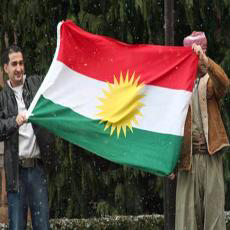|
|
Malperek bź sansūr e, hay ji xwe hebin! |
|
|
|
Malperek bź sansūr e, hay ji xwe hebin! |
|

11/11/08
Outside the Vanderbubble, Nashville is a diverse and
cosmopolitan place. The city surrounding us boasts a huge immigrant population,
and many of these are political refugees. One particularly significant group,
especially considering the current Iraq War, is the local Kurdish population.
Many Kurds come to Nashville to escape persecution in the Middle East. The
best-known example of this dates to 1988, when Saddam Hussein waged genocide
against Iraqi Kurds. Thousands of Kurds were killed by chemical warfare and mass
destruction, and even more simply disappeared. This, however, was only the
culmination of past persecution and violence against the Kurds in Iraq and
elsewhere.
The Kurdish ethnic group originates in various countries in the Middle East
including Iran, Iraq, Syria, and Armenia. A large portion also live in Turkey,
where they make up approximately 20 percent of the population and are the second
largest ethnic group. The area where the Kurds live is sometimes referred to as
Kurdistan and encompasses parts of all these countries. Overall, nearly 40
million Kurds live in the area, though some have fled to other countries to
avoid persecution.
The Kurds are the largest ethnic group without a nation of their own. Split
between various regions, the Kurds have given up their fight for independence
and now look for merely autonomous rule within each nation. In the United
States, the largest concentration of Kurds is here in Nashville. According to
Mwafac Mohammed, director of Kurdish Achievers, the Nashville Kurdish population
totals 10,000. He explained that the first families arrived in Nashville in the
1970s and friends and relatives have followed. A very traditional people, they
have established a tight-knit community and culture in Nashville. "There
are over 70 Kurdish-owned businesses like bakeries, dealerships, you name
it," says Mohammed. Although Kurds do live elsewhere in the United States,
they often move to Nashville for the spiritual and social support that such a
large community provides.
Like other refugee populations, the Kurds have faced problems in the past,
especially with language barriers. However, many of the elderly Kurds now have
adult children to aid them with translating. Interestingly, many Kurds now know
English before arriving in the United States. In general, the Kurds have
prospered in Nashville and are no longer concentrated in just one area, as they
were previously in the Woodbine area. Now, some Kurdish families can afford to
buy houses throughout Nashville. The Kurds tend to have large families of six or
seven people, and generally all family members work. "[We are] hard working and
very independent," says Mohammed of the Kurdish community.
Still, Kurdish immigrants maintain traditional culture and contacts. They keep
in touch with family in Iraq, Iran and elsewhere. Mohammed explained that cell
phones, in particular, have made this much easier. Kurds in the United States
prefer very traditional weddings. They even hold traditional funerals for those
who die overseas, utilizing communications technology to stay connected. Some
Kurds do wish to eventually return home to Kurdistan, but others, happy with
their lives here, plan to stay.
In general, the Kurds have been very successful in Nashville, and groups like
Kurdish Achievers will ensure that they continue to be. Kurdish Achievers is a
program that helps high school students apply to college and prevents gang
activity in Kurdish communities. This is in response to the gang Kurdish Pride,
which has been growing in recent years. The program brings in college students
and other mentors to help with SAT/ACT preparation. Vanderbilt STAND volunteers
with the group and has been very enthusiastic about the attitudes and work
ethics of the Kurdish youth.
If you want to learn more about working with the Kurds and other Nashville
immigrant communities, contact Vanderbilt STAND
(studentorgs.vanderbilt.edu/stand), or visit nashvillekurds.com to learn more
about the local Kurdish population.